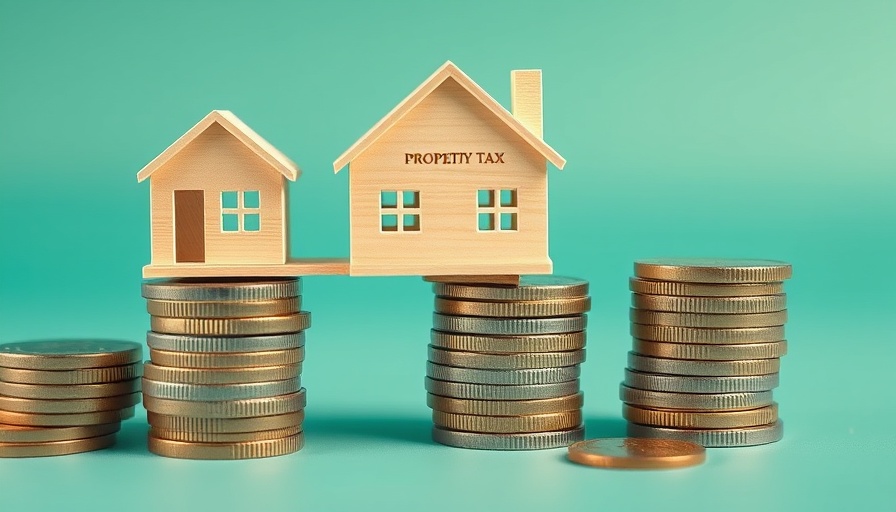
The Ripple Effect of Rising Council Taxes on the Housing Market
As England grapples with potential 25% council tax increases, housing market analysts are bracing for significant implications. These hikes could reshape buyer behavior, mortgage accessibility, and overall market stability. The National Housing Federation has voiced concerns about how this could exacerbate the affordability crisis, particularly for first-time buyers and young families already facing rising costs in an ever-challenging economic climate.
Understanding the Financial Dynamics
The forecasted council tax increases come amidst a backdrop of rising living costs and stagnant wages, creating a perfect storm for potential buyers. With council taxes being a crucial expense, households must allocate more of their budgets to these fees, reducing discretionary spending power. This situation may lead to a stagnation in the housing market as prospective buyers either withdraw from the market or delay their purchasing decisions. Lenders may also tighten their underwriting standards, fearing that buyers will struggle to meet mortgage payments along with inflated council taxes.
What Historical Trends Reveal
Historically, significant increases in council tax have corresponded with downturns in housing market activity. In 2023, when councils hiked taxes by around 11%, there was a noticeable dip in new mortgage approvals. Trends from previous years suggest that when local councils increase taxes sharply, housing demand often decreases, leading to lower home values and stalled sales. This pattern raises questions about the sustainability of the current market if these predictions hold true.
Future Predictions: Market Adjustments Ahead?
With financial analysts projecting these shuttering effects on the housing market, many professionals are advocating for immediate measures. Experts suggest that local governments should explore alternative funding mechanisms for essential services to avoid heavy tax burdens. If implemented, such strategies could potentially mitigate risks to the housing market and instill consumer confidence. Moreover, data from recent surveys show that approximately 67% of homebuyers cite affordability concerns as their primary decision-making factor. In light of steep council tax increases, efforts to stabilize the market could be paramount.
Counterarguments: Long-Term Implications versus Short-Term Gains
While many anticipate doom and gloom for the housing market, some real estate agents argue that a revision of tax policies could enhance essential public services, indirectly benefiting market conditions. Improvements in local infrastructure, education, and public safety may lead to increased property values across communities, as homebuyers will be willing to invest in areas they perceive as thriving. Therefore, balancing immediate financial burdens against long-term community enhancements is a crucial topic for policymakers.
The Human Impact: Families Brace for Change
As council taxes rise, the burden will inevitably fall upon families already balancing tight budgets. Single-income households and young families will feel this pressure acutely, with many fearing they may be priced out of their neighborhoods or forced to make difficult sacrifices. From reducing spending on leisure activities to contemplating leaving their homes, the emotional toll of rising council taxes may lead to increased anxiety and uncertainty within these communities.
Rethinking Approaches: A Call for Policy Innovation
To effectively address the looming threat posed by soaring council taxes, innovative policy solutions must be considered. This may include revisiting the structure of council funding, assessing tax brackets based on income rather than flat rates, or exploring public-private partnerships to fund essential services without burdening residents further. A collaborative approach that incorporates community input can help ensure that the council tax system is both fair and sustainable, thus promoting a stable housing market.
In conclusion, as stakeholders analyze the potential impacts of 25% council tax increases, it becomes evident that proactive measures are essential. The housing market faces real threats, but with thoughtful policies and community engagement, there is an opportunity to navigate these challenges effectively. As we reflect on the importance of affordable housing, sustainable policies, and community welfare, let us advocate for solutions that support all residents during tumultuous times. As these discussions unfold, stay informed and prepare for potential shifts in the housing landscape.
 Add Row
Add Row  Add
Add 



Write A Comment